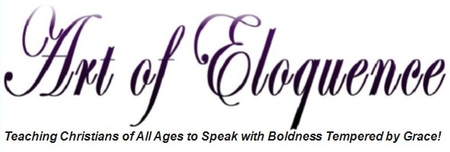Freedom of Speech
5 comments
-
Fabulous articulation of the true intent of the freedom of religion and speech argument. I wish more people understood this!
-
What a great blog! I have been working with my daughter on making sure when she talks about things like faith and religion that she is clear and concise. She is very outspoken – even at 9. We take the freedom of speech very seriously in our home. I intend to make sure that the torch is passed to our future generations.
-
I love this post – so well thought out and delivered so nicely! Our freedom of speech was bought at a great price – and I’m so grateful for those that have gone before us to make sure this happened for us :) Hope you have a terrific 4th of July!
-
In discussing issues of separation of church and state, it is critical to distinguish the “public square” from “government.” The principle of separation of church and state does not purge religion from the public square—far from it. Indeed, the First Amendment’s “free exercise” clause assures that each individual is free to exercise and express his or her religious views—publicly as well as privately. And in practice, there is plenty of religion out there in the public square; I see and hear of it daily on the street, on the radio, on the TV, on the internet, etc.
The First Amendment’s “establishment” clause constrains only the government not to promote or otherwise take steps toward establishment of religion. When an individual acts in an official capacity on a government matter (e.g., a public school teacher instructing students in the classroom), he or she should conform to the First Amendment constraints on government. When an individual participates in an official event as an individual rather than as a government agent, he or she presumably has the freedom to express religious views. While figuring out whether someone is acting in an official or private capacity in any given circumstance can be complex, recognizing the distinction is critical.
The First Amendment thus embodies the simple, just idea that each of us should be free to exercise and express his or her religious views without expecting that the government will endorse or promote his or her views and without fearing that the government will endorse or promote the religious views of others. By keeping government and religion separate, the establishment clause serves to protect the freedom of all to exercise their religion.
Reasonable people may differ, of course, on how the principles embodied in the First Amendment should be applied in particular situations, but the principles are hardly to be doubted. Moreover, they are good, sound principles that should be nurtured and defended, not attacked. Efforts to transform our secular government into some form of government-religion partnership should be resisted by every patriot.
-
I believe that the 1st Amendment guarantees us freedom OF religion, not freedom FROM religion. The Pilgrims came here from Europe seeking religious freedom. They knew all about persecution and what a state or king-run religious system was like. Sadly, it has been twisted over the years.
What really scares me, though, is the last sentence of the first amendment, which is being eroded faster and faster:
“the right of the people peaceably to assemble, and to petition the Government for a redress of grievances.”
I foresee that, very soon, we will not longer have the redress of grievances that we have been heretofore guaranteed. Our current administration does not like criticism or to be challenged on any point. That is a very scary proposition. To learn, we only have to look at some of the other forms of government that were popular over the past 100 years or so. I don’t remember who said it, but I firmly believe in the saying. . . “Those who don’t know history are doomed to repeat it.” (Probably a bad paraphase on my part.)
